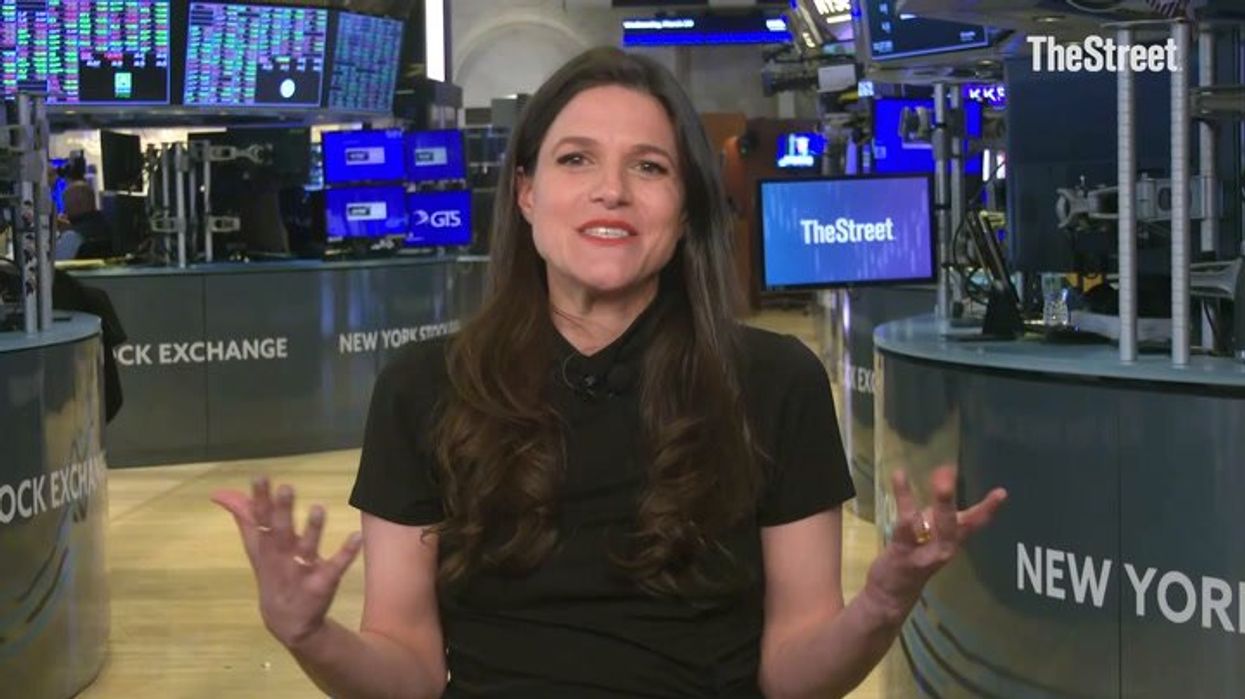Catherine Shuttleworth
Apr 18, 2024
Kara Swisher: The internet has ended traditional media
Maven - The Street National / VideoElephant
You may have heard the term "Dead Internet" floating around online recently, but what does it actually mean?
The "Dead Internet" theory has existed for roughly seven years now, and at its core is the belief the internet has been dominated by artificially created content, rather than organic, human-created content that existed in the early days of the internet.
Therefore, the internet is "dead" because the predominant content that can be found is created by bots and interacted with by bots, meaning it's no longer created by human beings.
But there's another layer to this theory, which puts it in the conspiracy theory category, and that is that the "Dead Internet" was entirely planned.
Some theorists argue the "Dead Internet" was spearheaded by governments and corporations as a way to exploit control over the public's perception.
While it's unlikely governments and corporations got together and decided to just flood the Internet with artificially created content, it's seems human-created content is becoming less and less visible.
With the rise of AI, especially AI images, bots are becoming more capable than ever, and it's allowing them to flood social media platforms with false photos and videos.
And the problem is that it's getting harder to spot what's fake and what's not, especially for older generations.
TikToker @sidemoneytom, has gone viral for documenting the "Dead Internet" in action, calling it the "Facebook AI Epidemic".
Tom finds obviously AI generated images, for example "spaghetti Jesus" (as seen below), and points out how the post is not only written by a bot, but garners hundreds of thousands of interactions from other bots, as well as older users.
@sidemoneytom Replying to @flechettefish3000 #greenscreen #fyp #facebook #facebookaiepidemic #foryou #deadinternet
This proliferation of AI-generated content is being referred to as "AI slime" because feeds are covered in it.
What's worse is that companies seem unbothered by the internet potentially becoming 'extinct'.
The Interceptreported TikTok is exploring the possibilities of releasing virtual influencers to compete for brand deals against human influencers.
It means advertisers wouldn't have to fork out tens of thousands of dollars to influencers to see their products promoted on the platform.
The feature "would generate a script for a video ad based on a prompt submitted by the advertiser, as well as an Al-generated influencer to perform in the video," according to The Intercept.
And it's not just TikTok. The New York Timesreported Instagram has begun testing a program that would allow popular influencers to turn themselves into AI-powered chatbots so they can engage with users... Without actually engaging with users themselves.
A 2022 report from Europol highlighted that experts believe that as much as 90 per cent of online content may be synthetically generated by 2026.
It seems human connection is more important than ever. But would it be such a bad thing if we all left the internet?
Sign upto our free Indy100 weekly newsletter
How to join the indy100's free WhatsApp channel
Have your say in our news democracy. Click the upvote icon at the top of the page to help raise this article through the indy100 rankings.
Top 100
The Conversation (0)














